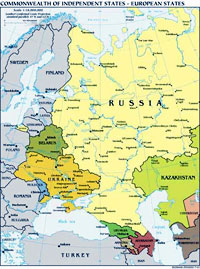Interfax: Russians happy with life, zest for protest actions on decline – research

MOSCOW. Nov 12 (Interfax) – Most Russians are happy; nearly two-thirds of them are making plans several months in advance and the number of potential protesters is now minimal, the leading domestic sociological centers said.
The Russian Public Opinion Study Center (VTsIOM), the Public Opinion Foundation and the GfK-Rus Institute for Market Research presented the “Russia Surprises” survey on Tuesday. The project covered development rates and trends of the past ten to 15 years.
The sociologists said that the potential for protest had reduced significantly in the period of 2006-2013. “Twenty-four percent said in 2006 they were prepared to join protest actions. The indicator has dropped to 17%,” VTsIOM head Valery Fyodorov said.
He also said that the share of Russians discontent with their life had been significantly reduced. “The number of respondents who are discontent with their life has halved, from 37% in the second quarter of 2005 to 19% in May 2013,” Fyodorov said.
The project busted the myth that Russians are living in the present, the VTsIOM head said. “Indeed, Russians are not long-term planners but two-thirds of the respondents still said they were trying to make plans for at least a few months in advance,” Fyodorov observed.
Judging by the opinion polls, the overwhelming majority of the respondents are not willing to leave Russia. Only 13% wish to take permanent residence abroad, he noted.
A significant change has occurred in the opinion of Russians about the minimum sum of money they could call savings, he said.
“The minimal sum of money described by Russians as savings has grown by almost 2.5 times, from 99,500 rubles in 2005 to almost 250,000 in 2013,” Fyodorov said.
VTsIOM held nationwide polls in 2013. Each time 1,600 respondents were interviewed in 130 towns and cities in 42 regions. The error was kept within 3.4%.
Valery Fadeyev, Director of the Institute for Public Planning and Chief Editor of the Expert journal, told the roundtable that the survey would not be regarded as propaganda of positive trends. This is about public sentiments, Fadeyev said.
“Seeking to avoid suspicions of propaganda, we must say that these are public sentiments. This does not mean that everyone is living a prosperous life and that everyone is living differently from what it was 30 or even 20 years ago. Comparing current living standards with the late Soviet period, we cannot say they have changed drastically,” Fadeyev said.
